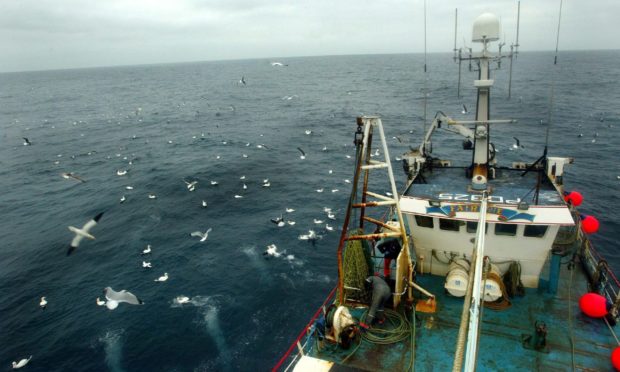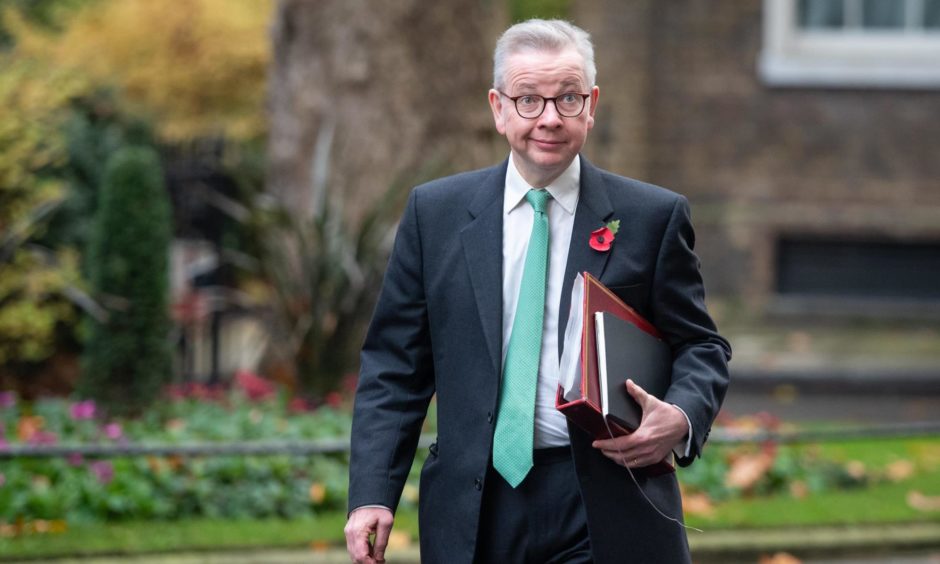Michael Gove has accused Nicola Sturgeon of undermining Brexit fishing talks by giving the impression the industry supports EU demands for access to UK waters.
Mr Gove said the UK Government had been “disappointed” by discussions the Scottish Government, including Ms Sturgeon, had with EU chief negotiator Michel Barnier.
In a letter to External Affairs Secretary Michael Russell, Mr Gove, the Cabinet Office Minister, said the Scottish Government’s “political level contacts” with Mr Barnier had been “detrimental” to the UK’s stance on the issue.
Mr Gove suggested he Scottish Government’s intervention had given EU negotiators the idea that “Scottish stakeholders” were supportive of their demands, a position which, he said, had been “damaging” to UK and Scottish interests.
In the view of our officials, this kind of contact, and specifically the discussion of sensitive issues under negotiation is, and has been, detrimental to the overall UK position and has negatively affected the negotiating dynamic.”
Michael Gove
The letter was sent as the UK’s EU withdrawal negotiations go down to the wire. Fishing is key to the talks with UK ministers insisting that Brexit should result in Britain leaving the Common Fisheries Policy (CFP) and becoming an independent coastal state.
In his letter, Mr Gove pointed out that international relations were reserved to Westminster and the UK Government was negotiating with the EU on “a UK wide” basis.
“For this reason, I should record that we have been disappointed by the political level contacts that the Scottish Government, including the first minister, have had during the period of the negotiations with the EU’s UK Task Force and specifically the EU’s Chief Negotiator (Michel Barnier),” Mr Gove wrote.
“In the view of our officials, this kind of contact, and specifically the discussion of sensitive issues under negotiation is, and has been, detrimental to the overall UK position and has negatively affected the negotiating dynamic. In particular, the EU appears to have concluded from these contacts that EU offensive asks (for example on fisheries access and the permanent maintenance of the status quo on unfair Common Fisheries Policy quotas) are outcomes the Scottish Government, and perhaps even more damagingly, Scottish stakeholders, support. This is highly regrettable and damaging to UK interests including in Scotland.”
In September it was reported that SNP ministers told the EU that Britain must soften its position on fishing rights.
At the time, it was reported that trade officials were concerned the Scottish Government’s approach was harming Brexit talks.
Regular discussions have taken place between senior figures in the Scottish government and the European Commission, including Ms Sturgeon and Mr Barnier, the EU’s chief Brexit negotiator. These are separate to the trade talks under way between Brussels and Whitehall.
September reports stated fisheries were discussed during a meeting in February, with the Scottish government expressing the view that “both sides need to move a bit”.
Back then, the intervention by SNP ministers caused consternation in Whitehall after it was mentioned to the UK government’s negotiating team by their European counterparts. It was raised in a terse official “catch up” between the Scottish and UK governments where sources at Westminster said they “called out” their Holyrood counterparts.
A spokesman for Constitution Secretary Michael Russell said: “It is beyond belief that in the midst of a pandemic and economic recession the UK Government is determined to force on Scotland a low deal, or even a catastrophic no deal, Brexit outcome.
“The responsibility for this is entirely the UK Government’s as they alone have been conducting the negotiations.
“The Scottish Government will always stand up for Scotland’s interests, and make absolutely no apology for doing so.
“We remain extremely concerned about the approach being taken by the UK Government, which clearly goes against the interests of the Scottish seafood sector and our coastal communities, and puts at risk almost £700 million of seafood exports to the EU.”

